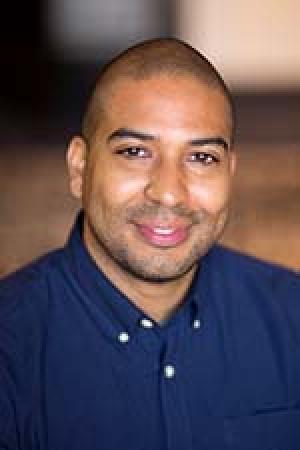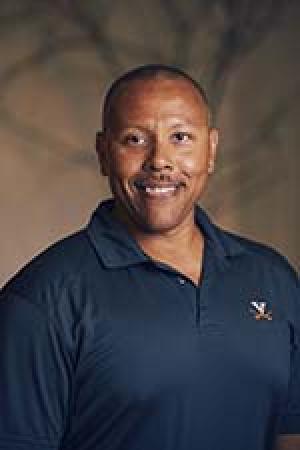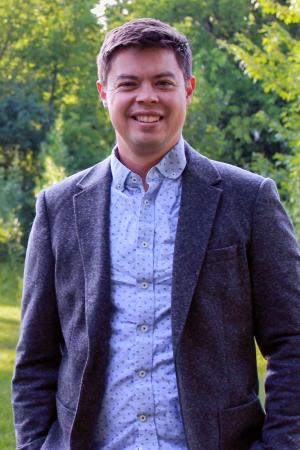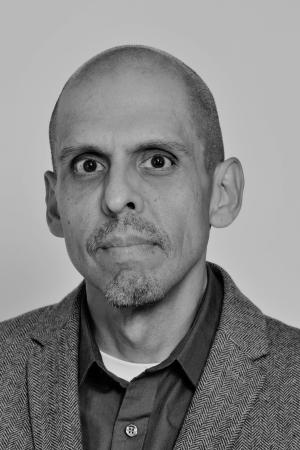Start your journey
Get your social studies teaching license and master’s degree in one year
Earn your master of education (MEd) and an initial Minnesota teaching license to teach grades 5-12 in our accelerated 12-month program. This full-time, graduate-level teacher preparation program integrates educational theory with extensive, hands-on classroom experience, ensuring you are ready for a successful social studies teacher career.
Within our supportive cohort model, you'll receive personalized guidance from expert faculty as you learn to lead critical conversations about justice, culture, and history. This graduate teaching program prepares you to teach social studies in middle and high school, and the license is highly transferable, offering flexibility for your future career path.
Career outlook
100% of students
found teaching jobs within a year of graduation
(2023-24 cohort, UMN Office of Teacher Education)
Admissions requirements
Application deadline
- October 1 - Application opens
- December 15 - Application closes
Decisions are released mid February.
Program prerequisites
Before you are admitted to the MEd and teaching license programs, you must complete some prerequisite coursework, which varies based on the type of license you are seeking. Review this list of prerequisites listed by license. Email the program advisor your unofficial transcript(s).
Application requirements
Transcripts
-
Unofficial transcripts: submit all unofficial transcripts from all previous institutions. Once admitted you will need official transcripts.
-
A bachelor’s degree from an accredited U.S institution, or a comparable degree from a recognized college or university in another country, is required.
-
2.80 GPA is required for full acceptance. Special review will be given to applicants with a GPA less than 2.80.
Resume
-
Highlight experiences and achievements working with children and youth.
Personal Statement
Writing prompt: Describe the world you come from--for example, your family, community or school. Tell us about a time when your worldview has informed and/or been challenged by working with children or youth.
- Reflecting on this and other experiences, how do you hope to grow as a reflective teacher through our program?
- Statement should be no longer than 5 pages. Standard font-size. Double-spaced. Include your name at the top of each page.
Letter of Recommendation
- Ask someone who can speak to your experience working with children and/or youth, or who can vouch for your commitment to educational equity.
- When you apply, list the name and email of your recommender. We will email them with instructions on how to submit their letter into the UMN application system. Please let them know to watch their Spam inbox in case the email appears there.
Diversity of Views and Experiences (DOVE) Statement
Diversity of views and experience is fundamental to the University's mission, and the University's faculty, staff, and students share responsibility for the collective achievement of this goal.
Diversity Statement writing prompt: Given the well-documented racial, ethnic, and/or cultural differences between teachers and the students they teach in K-12 spaces, what have you done to further your knowledge and understanding about equity and diversity?
(Optional) Extenuating Circumstances Statement
-
Required for those with a GPA lower than 2.8.
-
Only submit if there is something on your transcript that does not accurately reflect who you are as a student.
-
No more than 500 words documenting unusual circumstances or hardships you have faced and the ways in which you have overcome or responded to them.
Application Fees
-
$75 for U.S. applicants
-
$95 for international applicants
NOTE: GRE not required.
International applicants
International applicants may also need:
TOEFL, IELTS or MELAB TOEFL
-
Required for non-native English speakers: institutional code: 6874.
-
IELTS and MELAB scores must be received directly from the testing center.
- An English translation of your transcripts, if the transcript is not in English.
- A course by course evaluation may be required.
- TOEFL scores. Official TOEFL scores are required. You may qualify for an exception if you have completed 16 semester or 24 quarter credits within the past 24 months in residence as a full-time student at an accredited institution of higher learning in the United States. Please see the University of Minnesota TOEFL score requirements and submission guidelines from the Graduate School. Early application is advised to ensure timely admission.
- International students with F-1 visas may take no more than the equivalent of one completely online education class (or 3 credits per semester) and count it towards their full-time course requirement. Full-time enrollment for graduate students is 6 credits. If you are enrolled in an online program and studying in your home country, you do not need full-time enrollment status.
- More information about English Language proficiency
Official evaluation of transcript by a NACES-approved member
-
You must get a NACES-approved member organization to complete a course-by-course evaluation of your transcript
-
Send to: Department of Curriculum and Instruction c/o Foreign Transcript Evaluations
Peik Hall, 125 159 Pillsbury Dr. SE Minneapolis, MN 55455
Tuition
Visit the College of Education and Human Development's 2025-2026 professional program costs page for information on master’s in social studies education (MEd) for teaching license program costs.
Visit OneStop for the most up-to-date tuition information and to understand the full cost of attendance.
Funding
CEHD Fellowships, scholarships, assistantships, and grants for graduate students
As a graduate student in CEHD, you may be eligible for fellowships, grants, and scholarships from the University of Minnesota, from our college, and from your academic department. Check out the CEHD aid for future teachers and graduate funding pages to get more information on funding opportunities!
Questions about funding
University funding opportunities
612.625.7579 | gsfellow@umn.edu
CEHD funding opportunities:
Financial aid
Financial aid for your graduate program works a little differently than financial aid at the undergraduate level. It’s important to know the differences and explore your options. Check out this One Stop link for more information on eligibility, required steps, and timelines. If you have questions, you should contact the program.
Apply for financial aid and scholarships when you submit your application
- Each year we award partial scholarships to qualified teaching candidates. Teaching candidates received over $600,000 in scholarships from CEHD last year.
- If you intend to teach a high-need subject in a public or private elementary or secondary school that serves low-income families, you may be eligible to receive grants of up to $4,000/year. Learn more about the TEACH grant on Onestop.
- If you plan to teach full time for five complete and consecutive years in schools that serve low-income families, you may be eligible for loan forgiveness of up to $17,500 through a program administered by the federal government.
- Learn more about teacher loan forgiveness
Request information
What our students say
Coursework
This program includes two components: initial teaching licensure and MEd degree. The Department of Curriculum and Instruction offers our teacher preparation programs at the graduate level because it affords you the opportunity to master your content knowledge through your undergraduate degree before being placed in a real classroom for an optimal learning experience.
Program duration:
12 months (3 semesters)
Modality:
In-person, cohort-based work
Schedule:
Full time
The initial teaching licensure coursework is offered in a full-time, 12-month, graduate-level format integrating educational theory with classroom practice. Courses start in the summer and finish the following summer.
Required courses
To look at the core curriculum and electives for the program, visit the University course catalog teaching MEd page (requirements tab > social studies education).
License requirements
In order to be recommended for your Minnesota social studies education license(s), you must successfully complete these licensure requirements mandated by the state of Minnesota.
This material is available in alternative formats upon request. Direct requests to the Office of Teacher Education at ote@umn.edu, 612-625-5060.
Our unique co-teaching program and cohort experience will help you gain the confidence you need to start in your own classroom with plenty of support. You will teach at both a middle school and high school as part of your student teaching practicum. Learn more about the student teaching experience.
- If you already have earned your initial teaching license, we offer an additional teaching license(s)
- DirecTrack to Teaching is an exploratory education program that lets you experience schools and school culture in a K-12 education setting
- The Racial Justice in Urban Schooling undergraduate minor lets you explore school systems and offer support to advance educational equity.
Faculty
See the award-winning faculty with practical and research experience teaching in this area.







